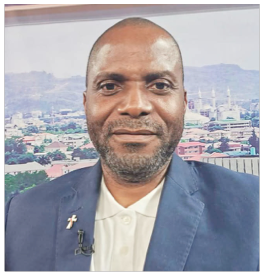
No Adequate Power Supply, No Economic Development
Nick Agule,FCA.
Email: nick.agule@yahoo.co.uk
X: @NickAgule
Facebook: Nick Agule, FCA
I had cause in the past to question Sir Rewane’s optimism for economic development in Nigeria whilst ignoring the limping of the biggest catalyst for economic development – electricity. This time around, he is spot-on to prioritise power supply without which the Nigerian economy remains in dire straits. If Nigeria’s 200+m-people economy can flourish with 3-5kMW of electricity, South Africa must be foolish to build 55kMW capacity for 60m people. Brazil must be stupid to build 150kMW capacity for 200+m people.
It’s inexplicable that President Tinubu who embarked on an ambitious power project (Eron floating turbines) whilst serving as Lagos State Governor is closing in on 2 years in office as President without tackling Nigeria’s power sector conundrum. The President only needs to take 2 steps or perhaps 3:
- Transfer Transmission Company of Nigeria (TCN) into private sector operatorship to attract the needed funding to boost capacity.
- Dislodge the brief-case companies straddling the Distribution Companies (DISCOs) to pave way for attraction of private sector funding, expertise and technology from competent power sector operators.
- Transfer the 9 power plants owned by the Government and operated by the Niger Delta Power Holding Company (NDPHC) into private sector operatorship to bring onstream their capacities.
I listened to the President during the media chat and he referred to boosting power supply a couple of times without saying exactly how he intends to achieve this. Of course, the subnationals must also come to the table with the electricity act now active.
Sir Rewane was also right on telcos tariffs even though we seem to pay more for telecoms services than elsewhere. Our TV in the UK is now fully on broadband and no longer via anthena or dish. Just imagine so much data consumption watching TV for the equivalent of N40k per month tariff inclusive of line rental.
But on upstream, Sir Rewane thinks the Nigerian National Petroleum Company Limited (NNPCL) is the one to reshape the industry but they are not! The NNPCL is pretty much a business that should be delivering profits such as Shell, Mobil, Chevron, Total etc are. They are an operator in the industry not a regulator which used to be the Department of Petroleum Resources (DPR) but now split into Nigerian Midstream and Downstream Petroleum Regulatory Authority (NMDPRA) and the Nigerian Upstream Petroleum Regulatory Commission (NUPRC). This wrong notion that the NNPCL has a coordinating role in shaping the upstream industry is what makes them get away with murder! If we begin to see the NNPCL as a poorly managed business, perhaps they may pressured into delivering better results.
The NNPCL is currently managing FG’s investments in Joint Ventures (JVs) operated by International Oil Companies (IOCs). Perhaps this is what gives them the aura of a regulator. But the NNPCL has no business with the biggest oil fields in Nigeria (offshore Production Sharing Contracts (PSC)) because they are operated outside the JVs. Reforming the upstream sector is therefore a responsibility of the NUPRC not the NNPCL.
The relationship between the NNPCL and the JVs can be likened to the Government owning a commercial bank – Nigeria National Commercial Bank Ltd (NNCBL). The Government also owns shares in other commercial banks (Zenith, GT, UBA etc). The NNCBL perpetually locks up its branches (dead refineries) yet pays staff the highest wages in the sector. And they fund these costs from dividends accruing to Govt from the other commercial banks that Govt holds shares in, which they spend and it’s the balance they pay to the federation account! Meanwhile the CBN is the regulator all this while not the NNCBL.
If I were to advise President Tinubu, I will plead with him to remove the NNPCL from managing Govt’s shares in JVs operated by the IOCs and let the NNPCL swim or sink on their internally generated revenues only.
Bottomline, Sir Rewane focused on the structural imbalances because if they are not unbundled, in vain do we hope for our economy to prosper!



